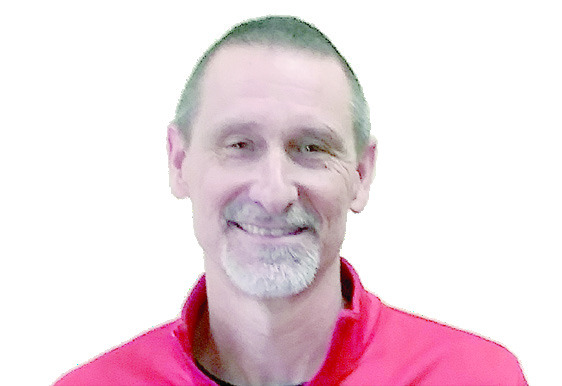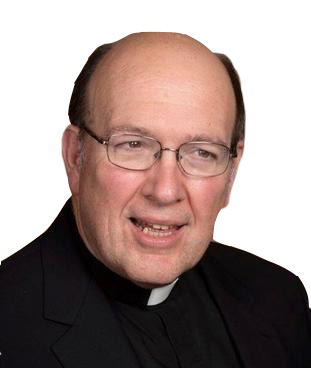Kyle Troutman: A step toward progress

A step was made toward progress for the Citizens For Justice — Barry County on Nov. 3, though in the wake of the group’s second meeting, there seemed to be as many questions as answers.
The group’s first meeting in September was void of any elected officials sue to the 24-hour notice. But this month, multiple county and state officials attended the meeting and spoke to the gathered crowd of about 75 individuals concerned about rising thefts and crime in Barry County.
Three county officials attended the meeting in Sheriff Danny Boyd, Presiding Commissioner Steve Blankenship and Northern Commissioner Gary Schad. State Rep. Scott Cupps, R-Shell Knob, and a stand-in for the office of State Sen. Mike Moon, R-Ash Grove, also attended.
Each of those who attended should be commended. Elected officials are chosen by us and work on our behalf, and no matter who you are, it takes a substantial level of courage to stand up in front of a room of people questioning your decisions and performance. It is a great step forward in community partnership that our elected officials are willing to do so.
Schad, Boyd and Cupps each spoke at the meeting, answering questions and giving advice to concerned community members.
Many of the lingering questions after the meeting hung on budgeting and how exactly the county is funding the sheriff’s office, jail and prosecutor’s office with the new law enforcement sales tax passed in 2022.
That tax began collection in October 2022, giving the county only three months of funds in its coffers — around $300,000 — to budget for the coming year.
Budgeting occurs in January, and the county literally only budgets money it has in the bank.
Schad’s go-to phrase to explain this is, “We can’t budget money we don’t have.” It’s a simple explanation, and it has to be taken at face value.
The sheriff’s office has a $1.7 million budget this year. The $300,000 in the bank isn’t enough to cover that.
The question many ask is, can the commission not budget using projections and performance of its other half-cent sales taxes?
That is certainly possible, but there is a risk. If the commission budgeted the $300,000 and the $2.4 million from the law enforcement tax this year — equaling the $2.7 million it plans to budget in 2024 — and funds don’t come in as expected, bills won’t get paid.
In weighing the need for additional funds immediately and the risk of over-budgeting, the commission elected to guard against the latter and follow its decades-long approach of only budgeting what’s in the bank.
While it does slow the process, this is sound fiscal policy.
That extra $2.4 million a year in law enforcement funds will also free up the $1.7 million in the general fund currently going toward law enforcement. It is that general fund money being used to build and pay off a state-of-the-art jail in seven years, and after that time, portions of that figure will return to law enforcement.
Having been involved in these budgeting discussions since the tax was proposed, I can say the county commission has never moved the needle when it comes to how it has planned to rework its finances.
Other questions stemming from the meeting dialed in on the sheriff’s office. The lingering question here is that in one breath, we hear a plan to hire 10 additional deputies, yet in another we hear how the state is 1,000 officers down and no one wants to be an officer — so how can we hire 10 people that don’t exist?
Will higher pay lure officers from other departments to Barry County? Would it work to have a system of paying to send people to the $8,000 academy in exchange for a three-year commitment?
Given that the pay raise wouldn’t come for another few months and the academy is a nine-month training, time is needed to answer those questions.
Additional questions after the meeting also centered around Cupps’ suggestions. A majority of what Cupps discussed was addressed in the Citizens for Justice’s leaders’ meeting with the county commission in September after the group’s first gathering.
The advanced electronic monitoring system is something he touched on but did not explain in-depth at the Nov. 4 meeting. As far as holding criminals accountable in the short-term, it could be a strong tool for the courts.
Cupps’ most interesting proposition was to start working toward a police training program in schools, similar to JROTC for the military or ag and FFA is for farming.
Could such a program be the solution to the police officer shortage we are experiencing? Possibly, but not any time soon.
That brings me to the biggest question the second Citizens For Justice meeting left — what can be done right now to stem crime?
Budgeting more funds for law enforcement will take time, completing the jail will take time, training or hiring new officers will take time, implementing an advanced monitoring program will take time, and building a program to funnel youth into a career facing a major shortage — you guessed it; that will take time.
Hearing about long-term solutions is great and I’m sure Citizens For Justice is glad we have them coming, but what are the short-term solutions?
At this juncture, the only form of action being taken is the forming of community watch groups.
If this doesn’t help stem crime, hopefully it will at least assist law enforcement in building cases and holding criminals more accountable for their actions.
I’m interested in seeing how the program progresses and hope to see continued cooperation between elected officials and the community.
The more we work together, the better off we will be.
Kyle Troutman has served as the editor of the Cassville Democrat since 2014 and became Publisher in 2023. He was named William E. James/Missouri Outstanding Young Journalist for daily newspapers in 2017, and he won a Golden Dozen Award from ISWINE in 2022. He may be reached at 417-847-2610 or [email protected].






